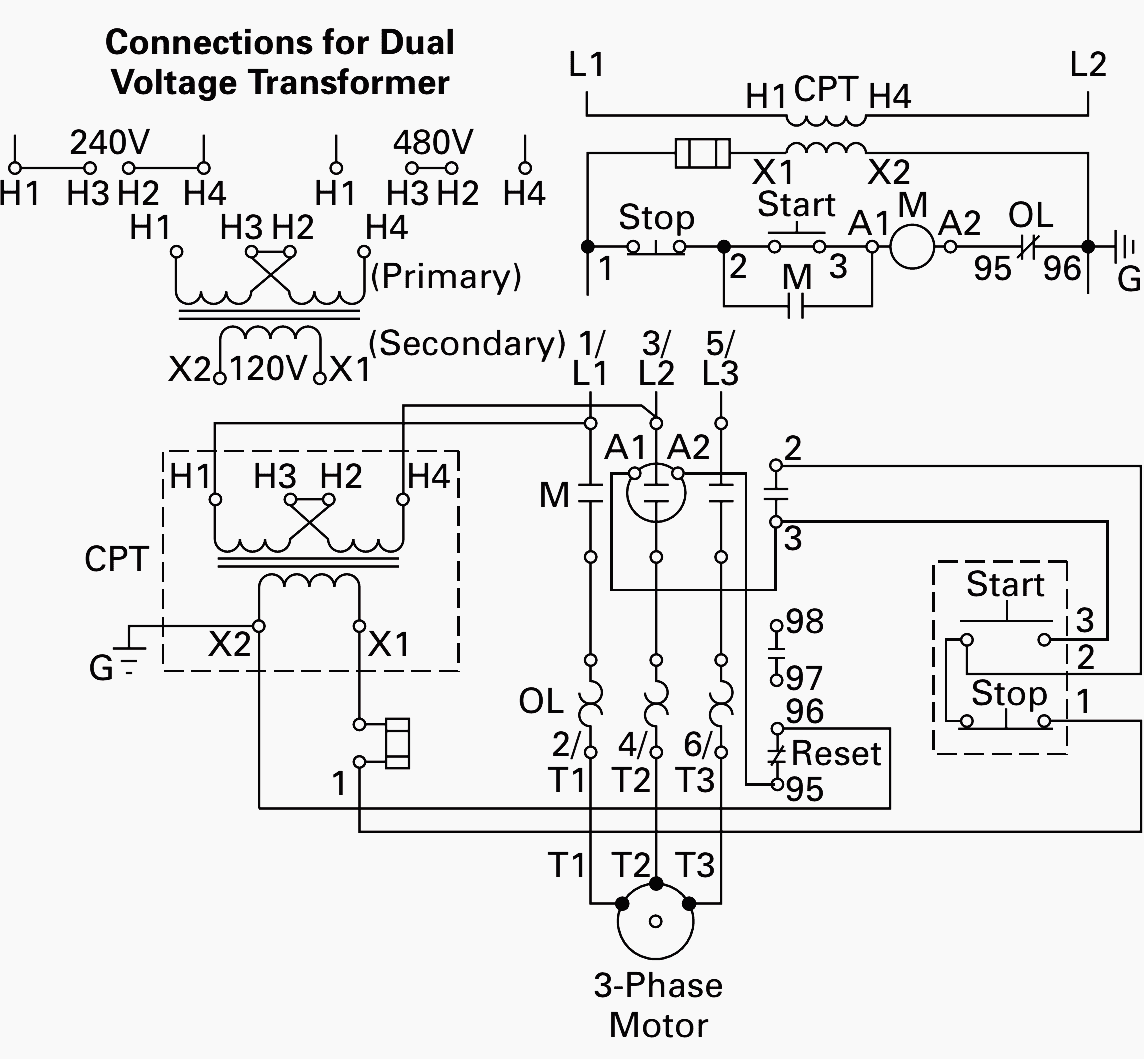Control Transformer Wiring Diagrams are essential tools for anyone working with electrical systems. These diagrams provide a visual representation of the connections and components in a control transformer circuit, making it easier to understand and troubleshoot electrical issues.
Why are Control Transformer Wiring Diagrams Essential?
Control Transformer Wiring Diagrams are essential for several reasons:
- They help ensure proper installation of control transformers
- They provide a roadmap for troubleshooting electrical problems
- They help prevent electrical hazards by identifying potential issues
How to Read and Interpret Control Transformer Wiring Diagrams
Reading and interpreting Control Transformer Wiring Diagrams may seem daunting at first, but with practice, it becomes easier. Here are some tips to help you navigate these diagrams effectively:
- Identify the components: Understand the symbols and components used in the diagram
- Follow the lines: Trace the lines to see how the components are connected
- Study the legends: Pay attention to the legends and labels to understand the diagram better
Using Control Transformer Wiring Diagrams for Troubleshooting
Control Transformer Wiring Diagrams are invaluable tools for troubleshooting electrical problems. Here’s how you can use them effectively:
- Identify the problem area: Use the diagram to pinpoint where the issue might be occurring
- Check for continuity: Use a multimeter to check for continuity in the circuit
- Compare with the actual system: Compare the diagram with the actual wiring to spot any discrepancies
Importance of Safety
When working with electrical systems and using wiring diagrams, safety should be your top priority. Here are some safety tips and best practices to keep in mind:
- Always turn off the power before working on any electrical system
- Use insulated tools to prevent electrical shocks
- Wear personal protective equipment, such as gloves and goggles
- Double-check all connections before turning the power back on
Control Transformer Wiring Diagram
Wiring of control power transformer for motor control circuits | EEP

Wiring A Control Transformer

Wiring of control power transformer for motor control circuits | EEP

Wiring of control power transformer for motor control circuits | EEP

480V To 120V Control Transformer Wiring Diagram – Easy Wiring

Square D Control Transformer Wiring Diagram – toughinspire
